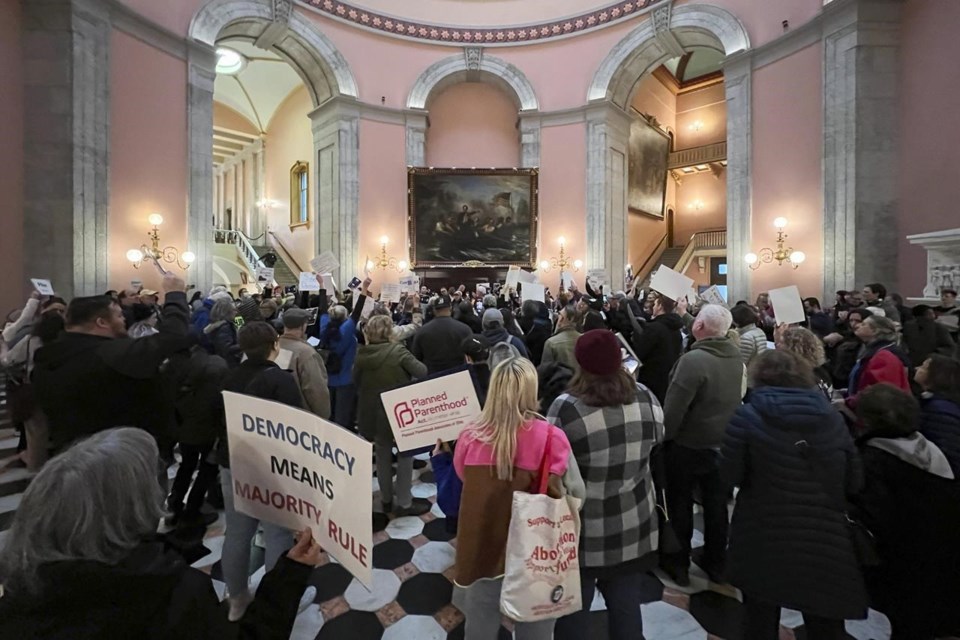COLUMBUS, Ohio (AP) — A ballot question seeking to make it more difficult to amend the Ohio Constitution was cleared for an August ballot on Thursday, and teams of Republican and Democratic lawmakers assigned to write pro and con arguments, respectively, to be presented to voters.
The process before the Ohio Ballot Board followed the raucous legislative floor session and months of drama leading up to approval of the measure, which is aimed at thwarting an effort to enshrine abortion rights in the state's constitution this fall. Abortion is currently legal in Ohio, up to 20 weeks' gestation, as a lawsuit against a near-ban enacted in 2019 is argued.
On this August's ballot, voters will be asked whether or not they support raising the threshold for passing future constitutional amendments from the simple majority Ohio has had in place since 1912 to a 60% supermajority. As a constitutional amendment itself, the 60% question will only need to pass by a simple majority of 50%-plus-one.
The bipartisan panel, chaired by Republican Ohio Secretary of State Frank LaRose, voted along party lines to certify the ballot language, which Democrats attacked as unfair and inaccurate. The arguments that voters see on their ballots are due to LaRose's office by Monday.
Issue 1's Republican backers are expected to characterize the effort as a constitutional protection act aimed at keeping deep-pocketed special interests out of Ohio’s foundational documents. Among groups supporting the higher bar are anti-abortion, pro-gun rights and business groups opposed to a burgeoning amendment that would raise Ohio's minimum wage.
Democrats will use their arguments to paint the 60% threshold as an assault on Ohio's long history of direct democracy. Some Democratic lawmakers led a “one person, one vote” chant and march after last week's vote from the floor of the Ohio House — echoing cries of a large crowd of protesters gathered outside.
Should either side object to the others' phrasing, they could file suit in the Ohio Supreme Court, which holds exclusive power to settle disputes in cases where lawmakers forward an ballot question straight to voters.
Democratic lawyer Don McTigue, representing the One Person One Vote Campaign, disagreed with the title LaRose's office gave to the issue, which describes it as “elevating the standards” to qualify constitutional amendments of Ohio's ballot. McTigue suggested “modifying” as more neutral, noting that it's against Ohio law for ballot language to bias voters in one way or another.
It was too soon to say Thursday whether his client will file a legal challenge, McTigue said.
McTigue and Democrats on the board also argued for including the current 50%-plus-one standard in the ballot language, so that voters know what they're changing, but the board rejected that idea.
The proposal also calls for doubling the number of Ohio counties — from 44 to all 88 — where backers of future initiative petitions would need to gather signatures in order to qualify for the ballot. As phrased by LaRose’s office, the question also appears to significantly raise the percentage of voters needed in each county, from 5% of those who voted in the last gubernatorial election to 5% of “all eligible voters.”
LaRose said his intention was to keep the ballot language simple, which Democratic state Sen. Bill DeMora said was disingenuous. “It's sneaky and it's illegal,” he said.
Julie Carr Smyth, The Associated Press



